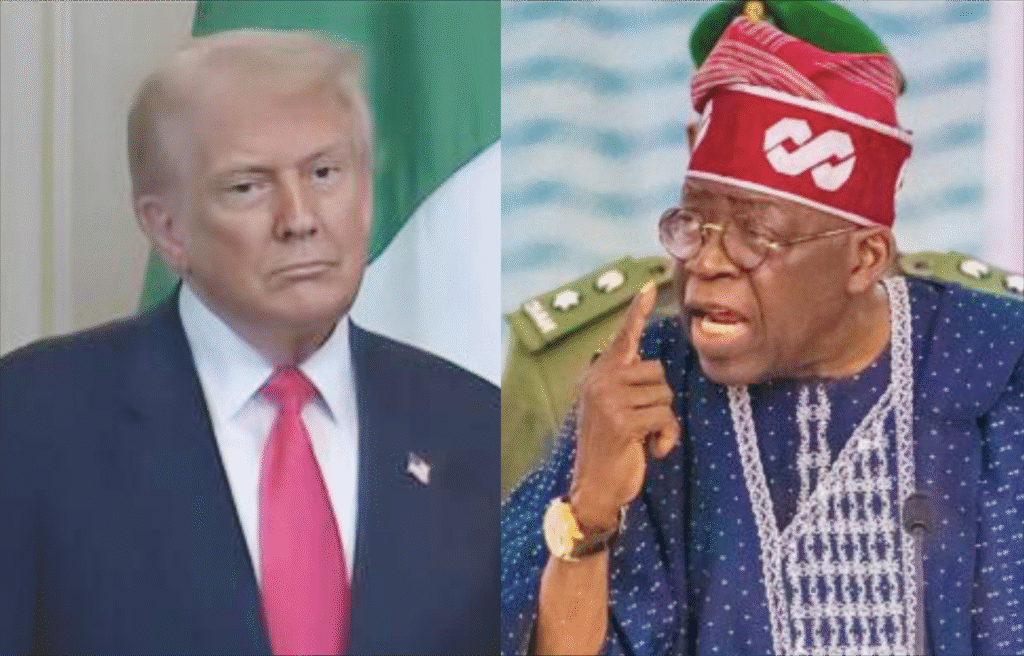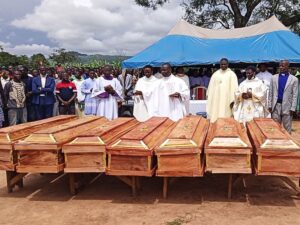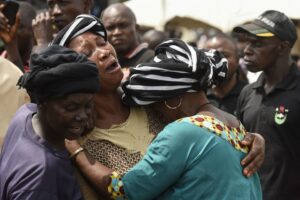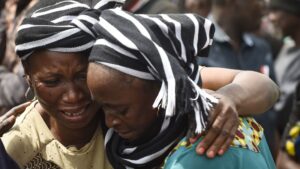Trump Threatens to Designate Nigeria Country of Particular Concern (CPC), Raising Diplomatic, Economic and Social Tensions across West Africa

Abuja/Washington – A new wave of diplomatic tension is building between the United States and Nigeria following former US President Donald Trump’s statement alleging that Christianity in Nigeria faces an existential threat. Trump announced that Nigeria would be designated a Country of Particular Concern (CPC) over alleged religious persecution, warning of potential military action and the suspension of American aid to Africa’s largest economy.
The declaration, made via social media and amplified by evangelical networks in the US, has sparked global debate not only over religious freedom but also over its potential impact on regional stability, trade and domestic politics in West Africa. And this could post economic frameworks under pressure.

![]()

The US and Nigeria maintain an indepth multifaceted relationship that extends well beyond religious issues. Nigeria is a key trade partner for the US, a major source of crude oil and a linchpin for regional economic stability through the Economic Community of West African States (ECOWAS).
Trump’s threat to cut off aid and consider sanctions under the CPC designation has rattled economic observers. American foreign assistance to Nigeria, amounting to hundreds of millions annually, supports health initiatives, counterterrorism training and development projects. Any disruption could destabilize programs that underpin both the Nigerian and wider West African economies.
In the view of a Lagos-based economist – “cutting aid or imposing sanctions under a religious freedom framework risks unintended consequences. It could slow down regional economic growth and weaken Nigeria’s capacity to manage its ongoing security and humanitarian challenges”.
The potential ripple effect across ECOWAS could be severe. Nigeria accounts for nearly 70 percent of the bloc’s GDP and serves as its main financial engine. A US-Nigeria diplomatic standoff could strain energy markets, disrupt supply chains and embolden non-state armed actors in neighboring countries. As the effect would harbour complex realities behind the violence.
Trump’s assertion that “thousands of Christians are being killed by radical Islamists” has reignited debate over the nature of violence in Nigeria. A country already battling overlapping security crises.
Analysts emphasize that the situation defies simple religious framing. Extremist insurgencies like Boko Haram, the Islamic State West Africa Province (ISWAP), Lakurawa, Herdsmen, etc. operate mainly in the northeast, targeting both Christians and Muslims. Meanwhile, farmer-herder clashes in the central belt stem largely from resource competition, land degradation and climate change rather than religious identity. “Labeling it purely as religious genocide oversimplifies Nigeria’s internal conflicts,” said Professor Ifeoma Okoye of the University of Lagos. “We are dealing with socio-economic dislocation, state fragility and a long history of ethnic mistrust. All of which transcend religious boundaries”.
![]()
![]()
Kidnappings for ransom, organized banditry and communal violence further blur the lines between ideology and economics. The humanitarian cost is enormous, with families torn apart, rural communities abandoned and schools shuttered across multiple regions. All of these situations affect the human, cultural and family dimensions.
Beyond politics and policy, Trump’s framing of Nigeria’s crisis touches a deeply human nerve. In communities ravaged by violence, which spans from Borno to Plateau State, many families face displacement, trauma and intergenerational poverty.
Religious mistrust has also seeped into cultural life, straining long-standing traditions of coexistence. Mixed-faith marriages and interethnic markets that once symbolized Nigeria’s pluralism, are now under pressure, with local leaders struggling to rebuild confidence. The danger of international rhetoric like Trump’s, can harden identity lines within Nigerian society. Families that once saw diversity as strength now feel divided by suspicion.
In regards to political ramifications and US-Africa relations with reference to Nigeria’s government, Trump’s statement is a diplomatic flashpoint. Officials in Abuja have dismissed his claims as a gross exaggeration and accused Washington of ignoring the complexity of Nigeria’s multi-layered violence.
The Nigerian presidency has appealed instead for greater US support in intelligence sharing and counterterrorism operations rather than punitive measures that could undermine local governance and international cooperation.

![]()
Trump’s move also reverberates through US domestic politics, where right-wing evangelical groups and conservative lawmakers have long pushed for stronger action on global Christian persecution. Senator Ted Cruz and other allies had previously urged the CPC designation, viewing it as a moral test of American leadership.
But foreign policy experts warn that such decisions, if driven by ideological or religious advocacy, risk undermining US credibility in Africa. This approach alienates African governments and fuels perceptions of selective moralism. As it will cause a broader regional and social implications.
The controversy over Trump’s statement highlights a profound question about how Western powers interpret African crises. Simplifying Nigeria’s conflicts into a binary of Christian victims and Muslim aggressors, overlooks the structural roots of violence, poverty, governance deficits, and competition over scarce resources.
In the longer term, the caution is that this narrative could exacerbate polarization both within Nigeria and across the Sahel, where fragile states are already grappling with extremist insurgencies and economic despair. At the social level, the framing of Nigeria as a site of religious war, risks stigmatizing entire communities and complicating interfaith peace-building efforts. It could also embolden fringe elements on both sides of the religious divide.
![]()
Trump’s pronouncement may have been politically calculated, but its implications stretch far beyond Washington. To millions of Nigerians, Christians and Muslims alike, the reality is one of insecurity, economic hardship and cultural strain.
Whether the US chooses confrontation or cooperation will shape not only Nigeria’s internal stability but also the broader trajectory of US-Africa relations. What remains clear is that Nigeria’s crisis cannot be solved through simplistic narratives or unilateral threats. It demands nuanced engagement, decapacitation/arrest of terrorism funders, resource control, economic investment and a commitment to understanding the complex human realities on the ground.






